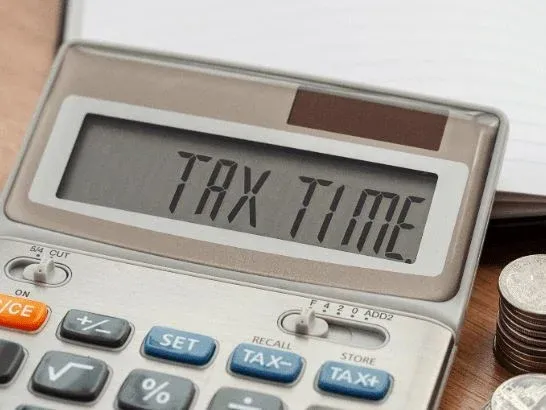TDS On Salary – Section 192
Written by
:Reviewed by
What Is The TDS Rate On Salary?
The TDS rate on salary depends on the income you receive from your employer, based on which you fall into different tax slab rates. According to the tax slab, the rate for your TDS deduction on salary will range from 10% to 30%.

Understanding TDS On Salary with Example
Average Income tax rate = Income tax payable (calculated through slab rates) divided by employee’s estimated income for the financial year.
For example, if Mr Sharma (ageing 58 years of age) receives a salary of Rs. 1,00,000 per month during the FY 2023-24.
We can compute His TDS on salary for FY 2023-24 under section 192 per month as follows:
| Total Income | Rs.12,00,000 |
| Estimated deduction (under Chapter VI A) | Rs.1,00,000 |
| Income chargeable to tax | Rs.11,00,000 |
As per section 192, his TDS on salary as per the current slab rate will be Rs.1,42,500.
After adding 4% education and higher education cess (i.e. Rs.5,700), the net tax payable becomes Rs.1,48,200.
Average rate of TDS on salary will equal Rs.1,48,200/12,00,000*100. In other words, Mr Sharma’s rate of TDS on salary will be 12.35%
TDS on salary under Section 192 to be deducted each month will be (Rs 1,00,000 x 12.35%), or Rs. 12,350.
Calculate your Income Tax
Overall Summary
- 100% Guaranteed returns*#
- Save tax up to Rs. 46,800##
How to Calculate TDS On Salary?
The calculation for TDS on salary is done by reducing the amount of exemption from the total annual salaried income of the employee. The Income Tax Department specifies the exemption limit. At the time of calculating TDS on salary; the employer needs to obtain proof and declaration from the employee before approving the exemption amount.

The following allowances are considered for tax exemption:
1. House Rent Allowance
2. Standard Deduction
3. Children Education Allowance
4. Leave Travel Allowance
Who Is Liable to Deduct TDS On Salary?
The employer is liable to deduct TDS on salary at the time of making the payment to the employee. The TDS deduction on salary can only be made at the time when actual payment is made. Also, it will be deducted when the employee’s salaried income is taxable. However, if the pay is equal to or less than Rs.2,50,000, then TDS on salary will not be deducted.
According to Section 192, there must be a relationship of employer-employee for making the TDS deduction on salary. Also, the following employers are liable to make TDS on salary deduction:
- Individuals
- Companies (Private or Public)
- HUF (Hindu Undivided Family)
- Trusts
- Partnership firms
- Co-operative societies
However, the employer’s status, such as company, HUF, or trust is irrelevant for TDS on salary deduction. Also, while making TDS on salary calculation, the number of employees employed by the employer has no bearing. You can check the TDS deducted on salary by downloading your salary slip.
Is TDS Deducted Every Month from Salary?
Yes, TDS on salary is deducted every month. As per Section 192, the employer will deduct TDS on salary at the time of making the payment to the employee. Since the employee gets a salary every month, the employer will make a deduction for TDS on salary every month. In case, the employer fails to deduct the same, he will be liable to pay the penalty and interest.
Is TDS Deduction On Salary Mandatory?
Yes, the deduction for TDS on salary is mandatory under Section 192 of the Income Tax Act . Every employer who pays a salaried income to his employees needs to deduct TDS on salary if the income amount is over the basic exemption limit.
How to Claim Your TDS On Salary?
There is no form or specific process to claim TDS refunds. The deductee needs to file the income tax returns usually only. However, if there is any excess of TDS on salary charged, what the employee is supposed to pay in the given year, then the refund amount will be due and will need to be shown in the returns filed.
How Can I Be Exempt from TDS Payment?
An employee can only be exempt from deduction of TDS on salary in case his/her estimated salary falls below the basic exemption limit. Otherwise, TDS on salary is a mandatory deduction for every employer. This rule shall also apply to employees who do not have a PAN.
Is TDS On Salary Refundable?

TDS on salary is refundable when the amount deducted is higher than what the employee’s actual tax liability is. Many times, the investment details declared at the start of the financial year do not seem to match with the actual investments made at the year-end. In case of such a mismatch, TDS on salary will be refundable w.r.t excess paid.
How to Claim Revised TDS Return?
Upon filing the TDS return, if you identify any error, such as PAN not provided or incorrect challan details, the Form 16/ Form 16A/ Form 26AS will not show the correct tax amount credited with the government. To ensure that the exact tax amount is credited and reflected in all the Forms, a revised TDS return needs to be filed.
Here are the different types of revisions that you can make to submit an error-free TDS return:
| Types of Correction | Particulars that can be Corrected |
|---|---|
| C1 | Details of the deductor (employer) like their name and address |
| C2 | Challan details such as challan amount, serial number, BSR code, and tender date |
| C3 | Details of the Deductee (Employee) |
| C4 | Salary Details erstwhile mentioned |
| C5 | PAN number of deductee (Employee) |
| C9 | Insert new challan and underlying deductee |
The deductor (employer in case of TDS on salary) will pay the charge again for revised return. Revised Return can be filed several times for incorporating any changes.
What Happens If TDS Is Not Deposited?

1) By Government
In such a situation, the taxpayer (employee in case of TDS on salary) will be caught between the employer and government’s income tax department.
In such a situation, the taxpayer (employee in case of TDS on salary) will be caught between the employer and government’s income tax department.
2) By Deductor (Employer)
In case the employer fails to deduct or deposit TDS on salary, then they will have to pay the penalty in the form of interest on the same. The table below explains the interest the employer will need to pay under two different cases:
| Section | Nature of Deduction Default | Interest | Interest Payment Period |
| 201A | Non-deduction of TDS on salary, either in whole or part | 1% per month | From the date on which the TDS deduction was to be made to the actual date of deduction |
| Non-payment of TDS on salary (after deduction) | 1.5% per month | From the date of TDS deduction to the time of actual payment |
How Can I Save TDS?
The employee can minimize TDS on salary by investing in specific tax saving instruments. The deduction benefits on TDS on salary can be enjoyed under the provisions of different sections. Here are a few important ones below: [3]
1) Under 80C
2) Under Section 80 D
3) Under 80 CCD (1b)
More plans for you
Frequently Asked Questions
ARN NO: June23/Bg/21K
[1]cleartax.in/s/view-form-26as-tax-credit-statement
[2]www.incometaxindia.gov.in/pages/acts/income-tax-act.aspx
[3]www.financialexpress.com/money/income-tax/how-to-avoid-TDS -on-salary-ppf-nps-bank-fd-rd-rent-home-loan-hra-lta/1830086/
Disclaimer:
Save 46800 on taxes if the insurance premium amount is Rs.1.5 lakh per annum and you are:
- Regular Individual
- Fall under 30% income tax slab having taxable income less than Rs. 50 lakh
- Opt for Old tax regime

Get Tax-Free##
Fixed Returns
up to 7.5%*
Popular Searches
- 0124 648 8900(09:00 AM to 09:00 PM Monday to Saturday)
- service.helpdesk@maxlifeinsurance.comEmail
- SMS ‘LIFE’ to 5616188Message
- Let us call you back
- 1860 120 5577(9:00 AM to 6:00 PM Monday to Saturday)
- Chat with us
- Write to usPlease write to us incase of any escalation/feedback/queries.
- 011-71025900, 011-61329950(9:00 AM to 6:00 PM Monday to Saturday)
- nri.helpdesk@maxlifeinsurance.comPlease write to us incase of any escalation/feedback/queries.

